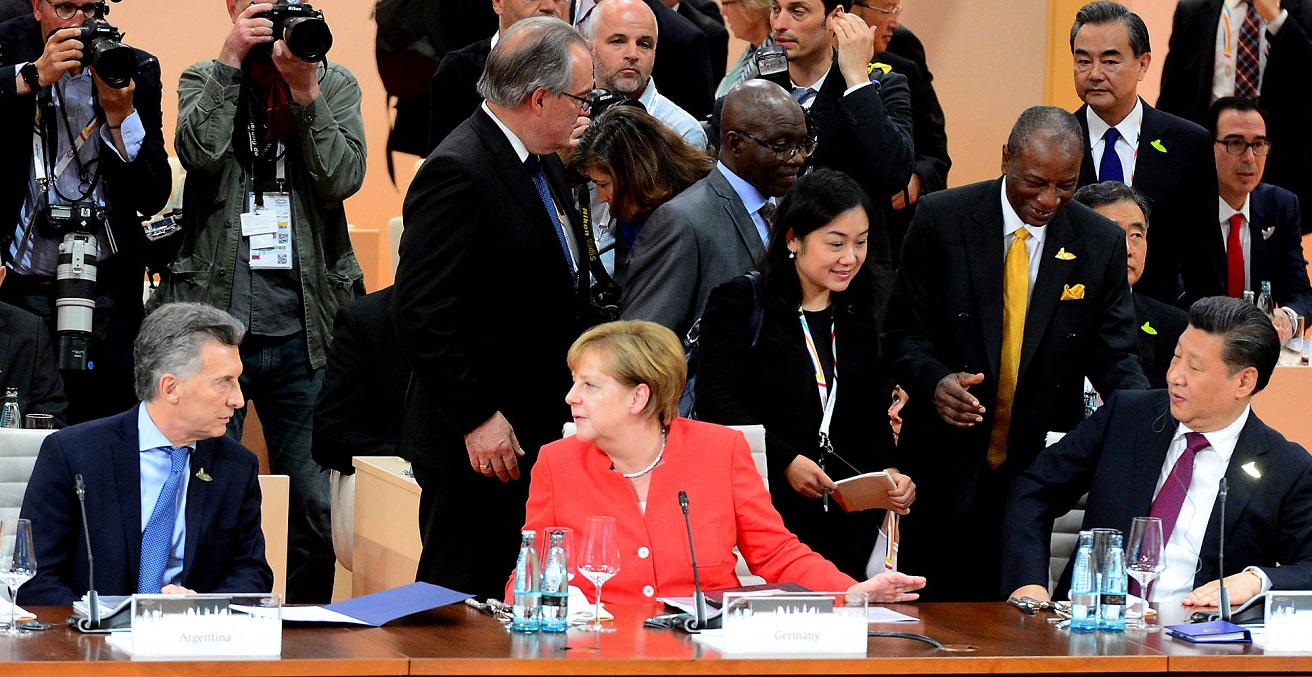A Timid Step Forward: Germany’s New Indo-Pacific Policy

The German government’s new policy guidelines for the Indo-Pacific region appear to be an appropriate recognition of the issues at stake. In reality, Germany continues to shy away from analysing the violations of international law in the South China Sea and developing a political response beyond technical cooperation.
Like many countries all over the world, Germany is realising that the Indo-Pacific is a region of both opportunity and conflict. The German government has belatedly reacted to the increasing level of tension in the region. However, Germany has not dared to position itself firmly in the camp of Western democracies and continues to prioritise harmonious relations with the People’s Republic of China. While that preference is understandable when considering Germany’s relatively close economic relations with China, it continues to surprise against the backdrop of German history. More than other countries, Germany should be aware of the risks of appeasement to an offensive totalitarian state
No country should be forced to choose
The white paper of the German government is quite a long text – the version sent to members of Federal Parliament is 35 pages long and contains many details. The paper identifies eight areas of interest, all of them quite broadly defined and uncontroversial. One point, however, sets the tone for the rest of the paper: No country shall be forced to decide which camp it belongs to; a repetition of the choices of the Cold War ought to be avoided.
Of course, such a statement sounds nice, but the assumption that such a choice exists without the potential to inflict damage needs to be contested. Is it possible to stay neutral in a conflict between democratic countries on one side and an increasingly aggressive and totalitarian state on the other? Why do the German government and population sympathise with China and despise the United States? Where are the lessons learned from the confrontation in the first Cold War?
Friends of Beijing?
A significant factor that shapes German foreign policy is the negative perception of the United States, and in particular of President Donald Trump. The effect is that many Germans prefer close relations with China to the traditionally close cooperation with Washington. In a poll published by the Koerber Foundation in May 2020, a bit over a third of those surveyed (36 percent) gave preference to close ties with China, and about the same share favoured close ties with the USA (37 percent). In 2019, the ratio had been different: 50 percent were in favour of closer ties with the United States, and only 24 percent of Germans favoured closer ties with China.
This change, of course, is a puzzle. Just when the rest of the world – from Canberra to New Delhi, London, and Paris – are reassessing their ties with Beijing, over a third of Germans are eager to cooperate more closely with Secretary General Xi Jinping and the Communist Party. A lack of knowledge of the situation in China may be one factor that could explain that preference, but two other explanations appear to be more convincing.
Economic interests are the first factor to consider – the European economy that is most dependent on China is Germany. In 2018, German exports to China amounted to €93.7 billion. That was slightly more than the exports of the next eight European economies to China combined. Great Britain (€23.4 billion), France (€20.9 billion), Italy (€13.2 billion), the Netherlands (€11.1 billion), Belgium (€7.0 billion), Sweden (€6.6 billion), Spain (€6.3 billion), and Ireland (€4.6 billion) have not benefited as much from trade with China as Germany, but that makes these economies less vulnerable to foreign policy blackmail attempts by the Communist Party.
The 30 largest listed German companies generate about 15 percent of their turnover in China. Carmakers are even more dependent on China. Daimler generates one third of its turnover in China and has tripled sales in the last five years. Many Germans are afraid to lose that business and rather do not wish to confront China. Chancellor Angela Merkel has championed that approach for many years. Very recently, however, she appears to have slightly altered her tactic and no longer talks about shared perspectives with Beijing.
The second factor is the negative perception of the USA. Many Germans had a very positive perception of Trump’s predecessor, Barack Obama, and despise the current president. Chancellor Merkel is no exception. In a speech at Harvard University in May 2019, she openly criticised Trump’s policies and contributed to the perception that the United States no longer is Germany’s most important partner in international relations.
Human rights more important than international law?
Symptomatic of Germany’s China policy is the speech by Federal President Frank-Walter Steinmeier, a former minister of Foreign Affairs, at the opening of the Munich Security Conference in February 2020, in which he addressed and criticised China’s rule violations on several different occasions. However, he criticised the violations of minority rights in China more strongly than China’s disregard for international law in the South China Sea. The latter, he said, “upsets the neighbors in the region.” This is a guileless and dangerous trivialisation. The violation of international law has relevance and significance not only for Vietnam and the Philippines, but also for European countries. While the British and French governments have understood this and see the necessity of countering Chinese aggression, the German head of state regards the violation of international law by China merely as a regional problem.
Against the background of economic interests combined with a naïve disregard for violations of international law by China, one may conclude that the development of an official German policy for the Indo-Pacific already constitutes a dramatic development and a recognition of the altered policy environment. However, this could be the wishful thinking of some observers. Apart from one sentence (“Germany is willing to contribute to the enforcement of rules and norms in the region”), the document lists a lot of useful activities, but falls short of concrete and robust measures. With regard to securing the freedom of navigation in the South China Sea, Germany intends to participate in military exercises, but puts equal emphasis on “civil crisis prevention, conflict management and peace promotion.”
On balance, Germany has not yet come to terms with the aggressive nature of the current Chinese government. The official paper on the German Indo-Pacific is a hodgepodge of policy initiatives, from sustainable infrastructure to measures to combat climate change, but it merely lists them and does not prioritise policies. The German government wants to support multilateralism in the Indo-Pacific, but its policies fail to recognise that most new threats in the region are originating from Beijing rather than from Washington.
Prof Dr Heribert Dieter is a Visiting Professor at Asia Global Institute, The University of Hong Kong, and Senior Fellow at German Institute for International and Security Affairs, Berlin.
This article is published under a Creative Commons License and may be republished with attribution.





